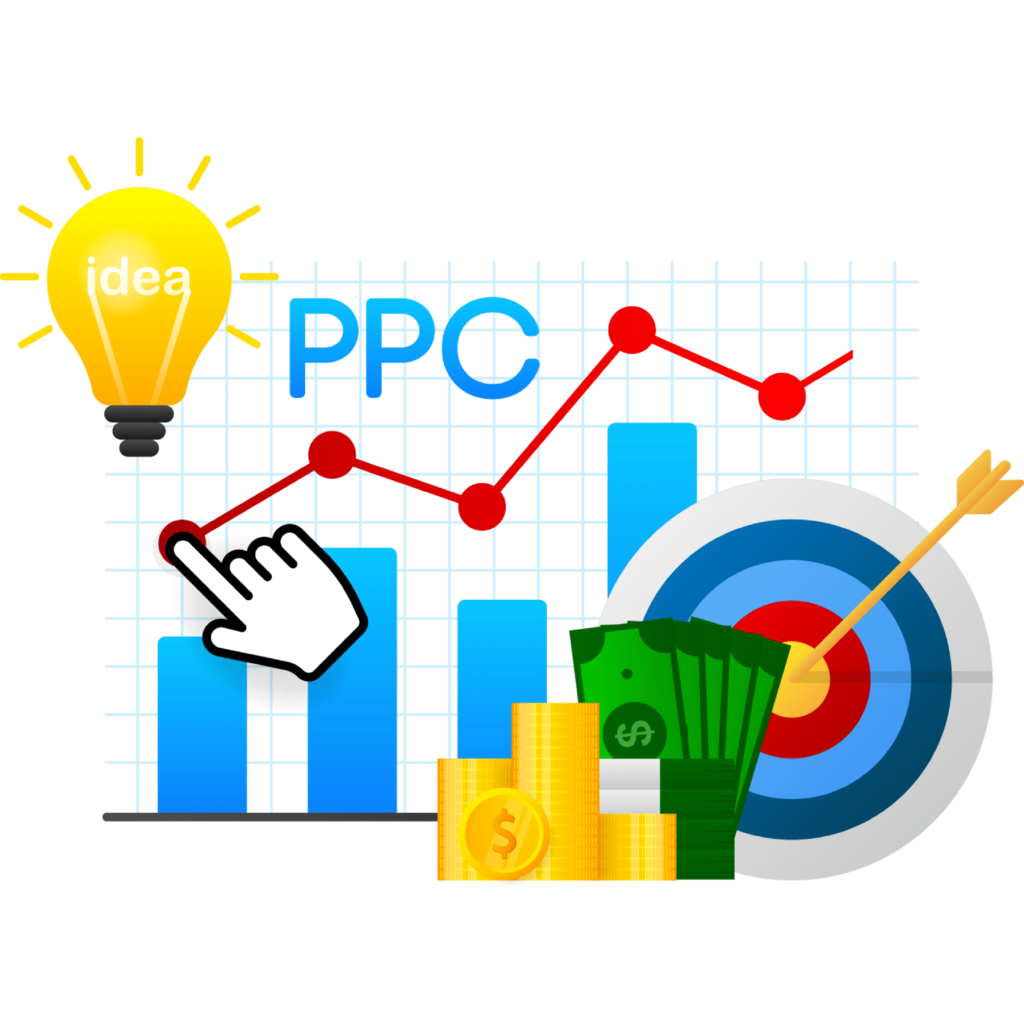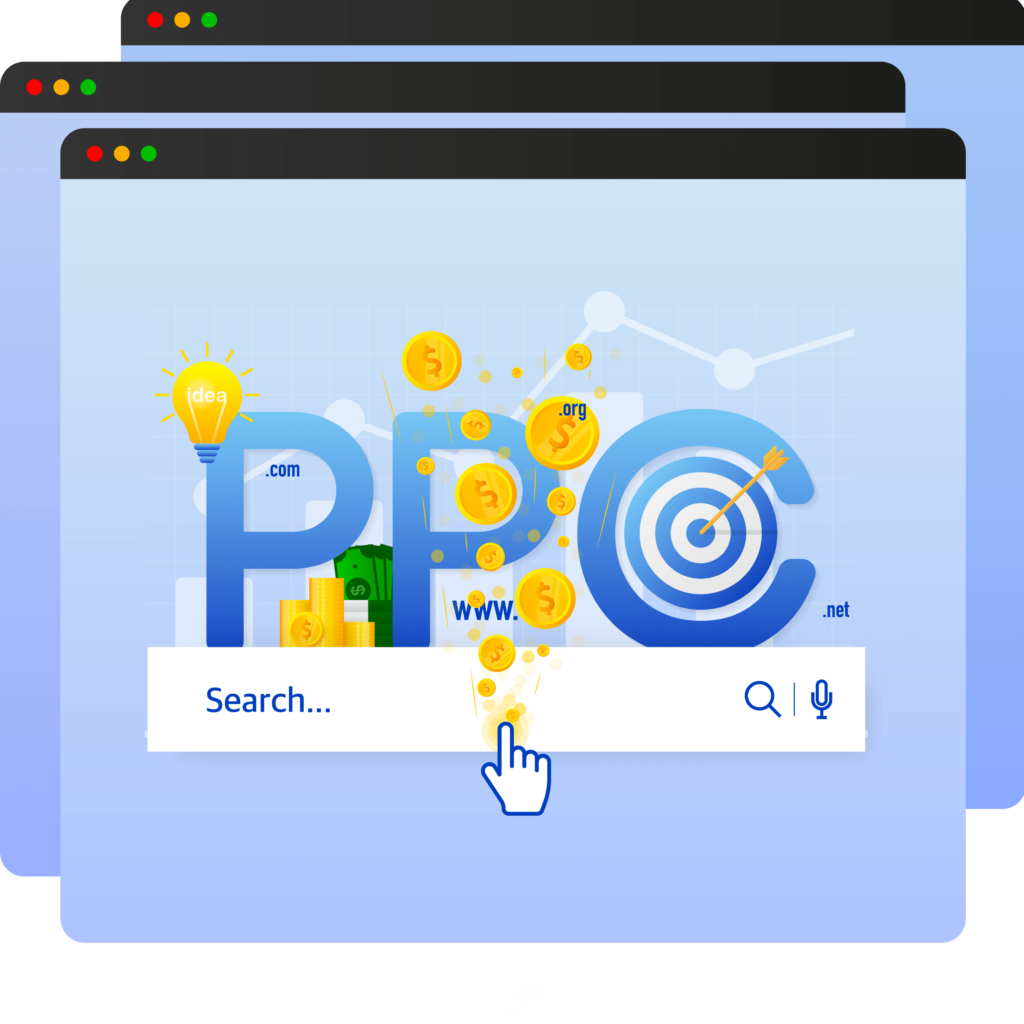Pay Per Click
PPC advertising works by allowing advertisers to bid on specific keywords or phrases that they want their ads to appear for in search engine results. When a user searches for one of those keywords or phrases, the advertiser’s ad will appear among the top results. The advertiser is then charged a fee each time a user clicks on their ad.
Advertisers create campaigns that target specific demographics, interests, locations, etc. They will set a maximum bid for the keywords they want to target.
The search engine will then use a complex algorithm to determine which ads to show and in what order. The algorithm takes into account factors such as the:
- Advertiser’s bid amount
- Relevance of the ad to the keyword
- Quality of the ad
- PPC strategy and campaign planning
- Top PPC platforms
- How to learn PPC


PPC offers several benefits not found with SEO or social media, including:
Quick results: PPC advertising can drive traffic to a website almost immediately, whereas SEO can take time to show results. Platforms usually approve ads the same day, providing maximum exposure almost immediately. This could be a text ad via Google search, an image ad through Instagram, or even a video featured on YouTube. Using multiple platforms in different formats can increase your brand’s visibility.
Reach your targeted audience: PPC advertising allows marketers to target specific demographics, interests, and location, which helps to reach the right audience. You can even target individuals based on their behaviors and interests; social media sites like Facebook can help you get your ad to the group that’s likely to convert into a sale.
Measurable: PPC advertising provides measurable results. It allows marketers to track conversions, return on investment (ROI), and other key performance indicators (KPIs).
Cost-effective: PPC advertising can be more cost-effective than traditional advertising methods, such as television or print ads, since marketers only pay when a user clicks on their ad, and they can set a budget for their campaign.
Branding: PPC advertising can help to increase brand awareness. Even if users don’t click on the ad, they may still see it and remember the brand.
Complementing SEO: PPC can be used to supplement SEO efforts. While SEO focuses on increasing organic traffic, PPC can be used to drive immediate traffic to a website while SEO efforts are still ongoing.
Track your goals: Tools such as Google Analytics can help you track your goals. See how your ads are performing in real-time, and decide what needs to get done to reach your goals more efficiently.
Reputation management: PPC can be used to bid on keywords matching a reputation event and directed to a landing page directly addressing the matter so you can control the narrative, instantly and professionally.
Overall, PPC advertising offers a cost-effective and measurable way to reach a targeted audience, generate leads and sales, and ultimately increase brand awareness.
